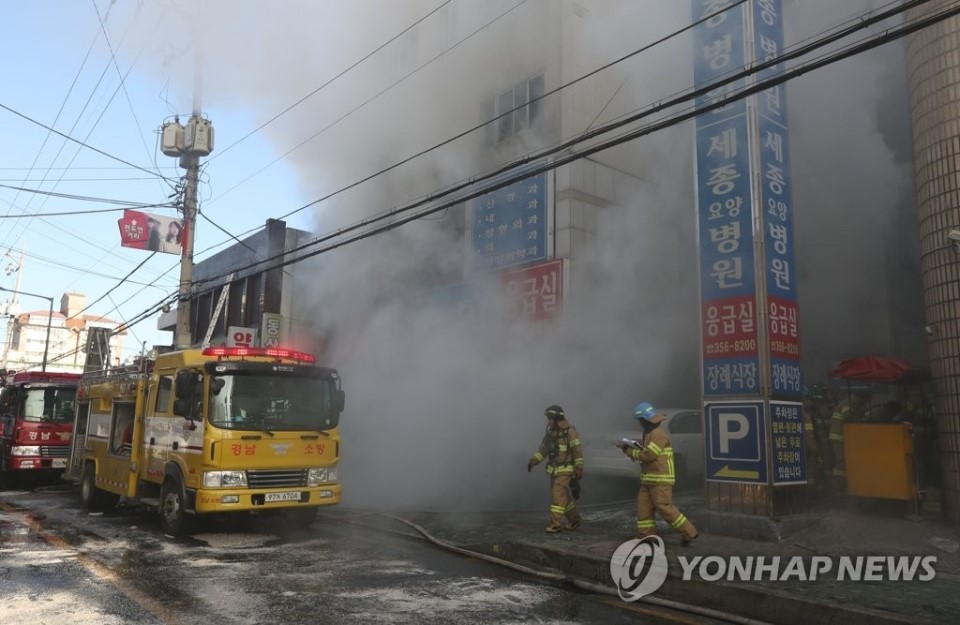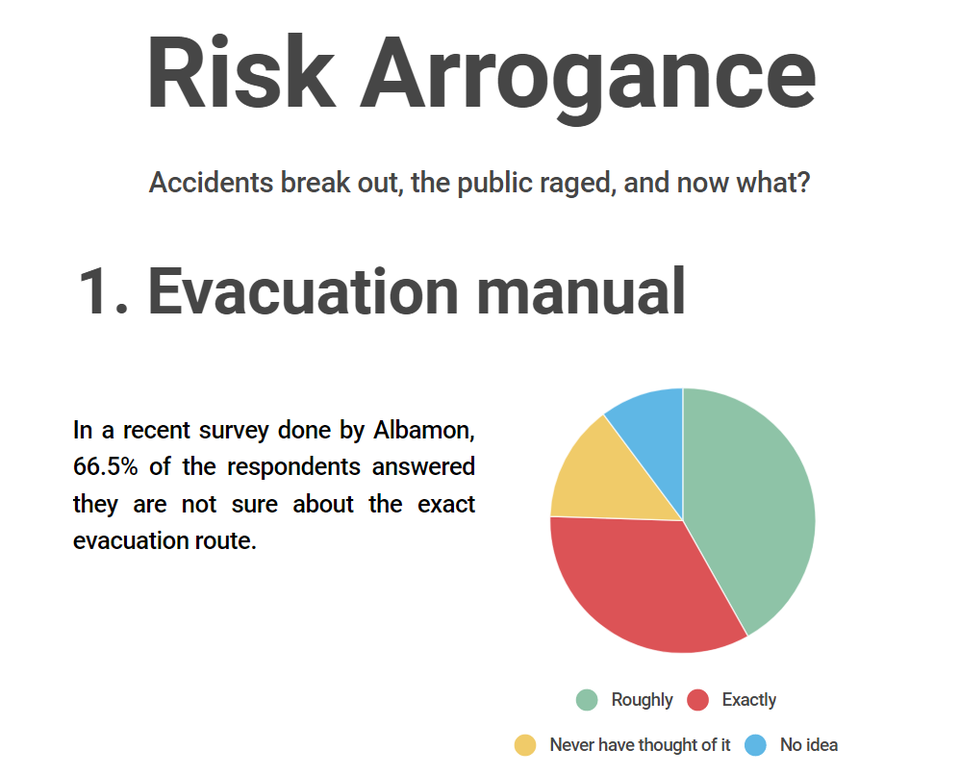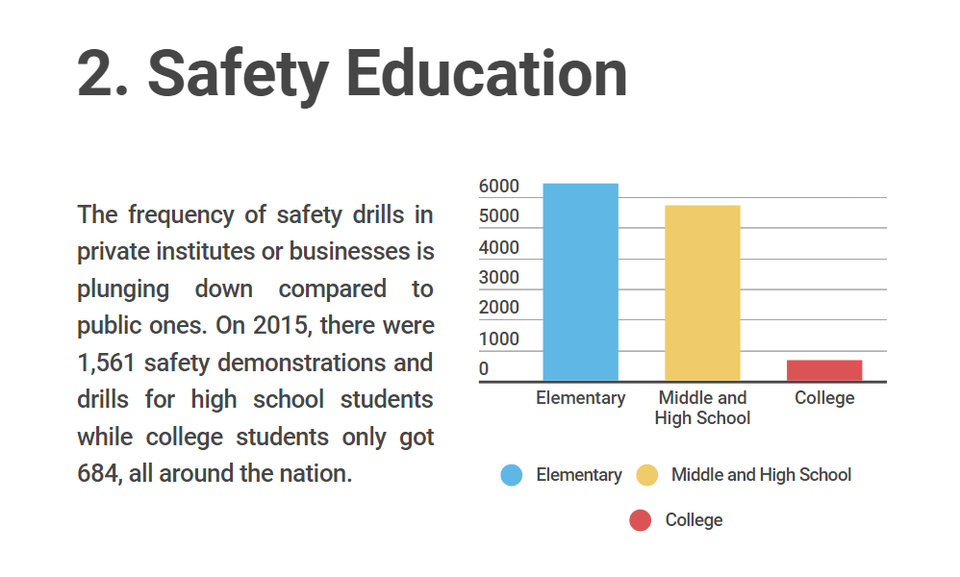Last winter, Korean society grieved for the victims of several fire related disasters. This succession of tragic incidents resulted in the growth of societal rage and a call for long overdue changes to fire response regulations and procedures. The backlash led to meaningful changes such as securing fire engine parking spaces and giving fire fighters exemption for legal responsibility when removing obstacles from parking spaces. Still, the public seems unaware that accidents can happen anytime and anywhere. Putting aside the massive systematical issues such as the use of flammable materials in building structures, or corrupt relationships between the owner and the safety administrator of a building, and looking instead at the root of the problem, risk ignorance is the primary reason Korean society will see little change in the future.
 |
| ▲ Continuing catastrophe made the society look back on current fire regulations. (Picture of recent Miryang conflagration taken by Yonhap News) |
The risk ignorant attitude is reflected in our clumsy evacuation manuals. In a recent survey conducted by Albamon, 66.5% of part time workers answered they were uncertain about the exact evacuation route in the event of an emergency. Part-time hospitality workers in particular, are expected to guide patrons to safety during an evacuation. Meanwhile, only 16.5% of respondents have received the proper education for emergency procedures. These part-time workers failed to provide effective guidance and rather froze up, just like their customers, when the fire bell rang. Sadly, it is nothing to be surprised about since the law commands employees must have safety demonstration from National Fire Agency (NFA) once before starting their job and the next mandatory demonstration is not scheduled before 2020.
 |
| ▲ Hospitality workers hardly ever receive safety education in contrast with their customers' expectation on the workers to play a leading role when evacuation is needed. |
Unfortunately, the legal system does not have enough force to make up for perceptional flaws. Until recent events, the National Assembly had been postponing its decision on a revised bill of Fire Defense Regulation proposed in November of 2016. Before the bill was amended, fire fighters were not able to move vehicles that were in the way of the fire engine. Government offices and schools have better conditions for operating regular fire drills under governmental supervision. However, private institutes, even educational ones, are overlooking the importance of safety manuals along with loose inspections from fire defense authorities. The frequency of safety education in private institutes or businesses is plunging down compared to public ones. In 2015, there were 1,561 safety demonstrations and drills for high school students while college students experienced 684, all around the nation.
 |
| ▲ Research by Ministry of Public Safety and Security, 2016. |
Fire fighters say damage to private property is inevitable when fighting a fire. They would never intentionally cause harm, but fire fighters had to compensate the victims by themselves. According to previous regulations, fire fighters had to prove first that the damage was necessary for extinguishing the fire in court. This is because fire rescue operations are not covered by the liability insurance of local governments. Fire fighters often chose to pay for it on their own since the lawsuit itself could have taken a long time to settle and they were not given any grants or subsidies by the government to help cover the costs. This policy of shifting responsibility to fire fighters discouraged them from their appropriate job performance.
Before this series of accidents, conventional thought was ignorant of, or maybe had no opportunity to look back on, the population’s risk arrogant behavior and our lax legal system. Now each local government and all congress people are pumping out a variety of proposals to resolve our systemic fire prevention and rescue problems. Empowering the legal system to eliminate obstacles is important. Nevertheless, change will not be prioritized without breaking the trend towards risk arrogance that prevails within every day society. The will of the people is needed to make things change for the better.
박채리, Edward Ng dankookherald@gmail.com

![[Campus Magnifier] Let's Surf the Library!](/news/photo/202404/12496_1765_4143.jpg) [Campus Magnifier] Let's Surf the Library!
[Campus Magnifier] Let's Surf the Library!
![[Campus Magnifier] Let's Surf the Library!](/news/thumbnail/202404/12496_1765_4143_v150.jpg)





